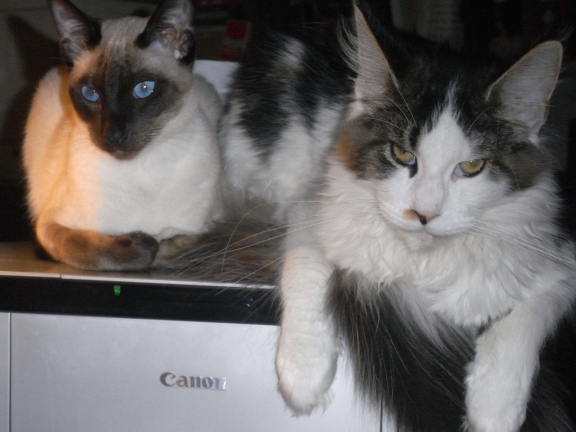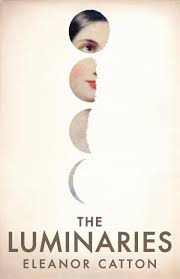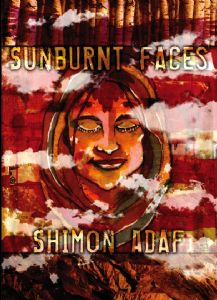So – the full list of novels submitted for the 2014 Arthur C. Clarke Award was released, via SFX magazine, at 2pm today. Numbering 121 books in total, it clocks up a record number. With both the Kitschies and the Clarke receiving increasing numbers of submissions year on year, this would seem to signal a growing awareness of and enthusiasm for these awards specifically and for speculative fiction in general both within the literary community and among the public at large. This can only be a good thing. It is even better that the diversity of submissions is also increasing, with more translations, edge-of-genre novels and experiments in form appearing alongside the usual core SF suspects. It is through the promotion, evaluation and celebration of such books that SF evolves. The Clarke exists precisely to encourage and facilitate this process.
There’s some great stuff on the subs list this year. By my first reckoning, I’d say there were more active contenders – by that I mean novels that are genuinely shortlist-worthy – than there were last year. This again is to be applauded. There are a good many equally possible, equally interesting shortlists hiding among those 121 submissions, and I have no doubt that if we had four sets of judges, say, working the list instead of just the one, we’d end up with four completely different shortlist picks and sets of emphases. That is both the beauty and the danger of the Clarke – there is no objectively perfect shortlist, just as there is no objectively perfect definition of what might constitute the year’s best science fiction novel. The shortlist that will be revealed to us in six weeks’ time will not be definitive, it will be a snapshot. Like all snapshots, it will illuminate but one moment, from a particular angle. It will tell part of the story but not all of it. No single snapshot ever can.
And that is part of why we love the Clarke so much.
I’ve had my usual fun with the list, which I’ll share with you here. Need I add that I have not read all of the books, nor even a goodly proportion of them. My thoughts and opinions are the product of research, sample-reading, reviews by sources I trust, and unabashed personal bias. Taking all that into consideration, here we go…
Firstly, my pick of six books that don’t have a prayer of getting on the actual shortlist, but should, absolutely, have been considered:
Andrew Crumey – The Secret Knowledge. Crumey is one of my favourite writers, full stop. Was his wonderful Sputnik Caledonia submitted for the Clarke back in 2008, I wonder? This guy is just a superb writer and criminally under-exposed.
Dave Eggers – The Circle. This is Eggers’s near-near future satire on the vast, corporate powerbases of our ever-expanding internet companies. The preview makes it irresistible and I’m eager to read the whole thing.
Adrian Hon – A History of the Future in 100 Objects. Oh, please let this be on the actual shortlist! A science fictional riff on the idea of that coffee table bestseller from a couple of years back, The History of the World in 100 Objects, Hon’s book is an edge-of-novel experiment in form that I find genuinely inspiring.
Andrei Kurkov – The Gardener from Ochakov. Kurkov is a wonderful writer, who uses speculative elements naturally and effortlessly as an integral portion of his stories. His writing is also extremely funny, as only sardonically aware, post-Soviet writing can be.
Robert J. Lennon – Familiar. I loved this so much I read Lennon’s previous novel, Castle, straight afterwards and loved that too. Wish I’d written this one myself.
Wu Ming-Yi – The Man with the Compound Eyes. I’ve read great chunks of this while standing in Waterstone’s and loved the mood of it, the texture, the imagery, the poetical weirdness. Eager to read the whole thing asap.
Shortlist I think the judges should pick (this is less obstinately esoteric than the one above, a genuinely plausible Clarke shortlist that would give the excellent Kitschies Red Tentacle a run for its money):
Margaret Atwood – MaddAddam. I’ve got big issues with the Oryx and Crake series (the Crakers, mainly), but the quality of Atwood’s writing means she absolutely deserves a place at the table, and should be awarded one.
Ionna Bourazopoulou – What Lot’s Wife Saw. Several people whose opinions I value have been recommending this. I’ve read the preview and liked it a lot. Intriguing, independent, innovative science fiction.
Ruth Ozeki – A Tale for the Time Being. I’ve just started reading this and am rapidly falling in love with it. This pick should be a no-brainer.
Christopher Priest – The Adjacent. Chris is one of the only writers producing ‘real’ SF as loved and accepted by core genre fans who could also hold his own on any Booker shortlist. This is a magnificent book, showcasing innovative ideas in terms of both subject matter and form. It would be madness to exclude it.
James Smythe – The Machine. I loved this book. One of my personal year’s best, in fact. It’s beautifully written, with never a sore sentence. Also, I just couldn’t put it down. Near future British SF of the finest calibre.
Marcel Theroux – Strange Bodies. Again, I’ve seen people I trust loving this, and I loved the preview. If this makes the shortlist I’ll definitely be reading it next.
Shortlist I think the judges might settle for (it’s safer than the above, more trad, and therefore much less interesting):
Stephen Baxter – Proxima. I’ve not read this, but I have given it as a Christmas present to someone who’s crazy about core SF. People are saying it’s Baxter’s best book in ages.
Ann Leckie – Ancillary Justice. Otherwise known as the steamroller. It seems to appeal across a wide sector of fandom. It’s the people’s choice.
Stephanie Saulter – Gemsigns. A well-received debut, classic dystopian tropes.
James Smythe – The Machine. With any luck, The Machine will manage to steal the soul of any jury, because it has everything.
Lavie Tidhar – The Violent Century. I have issues with this book, mainly because I’m just not a fan of superheroes. But Tidhar writes with flair and from the gut, always with serious intent. The general consensus is positive. I reckon it’s a cert.
Paul McAuley – Evening’s Empires. Paul Kincaid rates this as almost the equal of its series precursor The Quiet War. McAuley is one of our most articulate and intelligent writers of core genre. I have the feeling it would be a popular choice.
NB: All other things being equal, I would have named Kameron Hurley’s God’s War as a shoo-in for this shortlist, but I reckon its prior publication in the US will have counted against it. There’s a feeling that this book has been around for some time, and its impact on the judges will have been lessened as a result.
Six interesting outliers:
Pippa Goldschmidt – The Falling Sky. I really enjoyed this. It’s beautifully written, sensitive, as well as being a fascinating insight into the working life of an astronomer. The speculative element is very slight, though.
Matt Hill – The Folded Man. I love this book. In a just world, it should be shortlisted. I just have the feeling the judges might look askance at its radical interpretation of what SF can be.
Charlie Human – Apocalypse Now Now. Again, I started reading this in Waterstone’s while I was looking for Christmas presents and it’s insane but I found myself enjoying it immediately. It’s witty and it’s fun. I can see this being optioned for a movie.
Robin Sloan – Mr Penumbra’s 24-Hour Bookstore. Easily my favourite from the Kitschies Golden Tentacle (debut novel) shortlist.
M. Suddain – Theatre of the Gods. This is massively overwritten but I couldn’t help admiring its madness. Sure evidence of an original and gifted writer at work.
Tony White – Shackleton’s Man Goes South. I’ve not read the whole of this yet, but I love the combination of documentary history and near-future SF. There are ideas here I’d like to work with myself.
Well, that’s my take on things. Now that’s over and done with I can sit back and look forward to reading other people’s predictions, meditations, and machinations. Let’s have some good rants, please!
As in any year, the most exciting thing about the Clarke is that anything could happen. I’m already itching to see the actual shortlist, to be revealed, so I believe, on March 18th. In the meantime, here’s to the judges – may their choices be wise ones.



